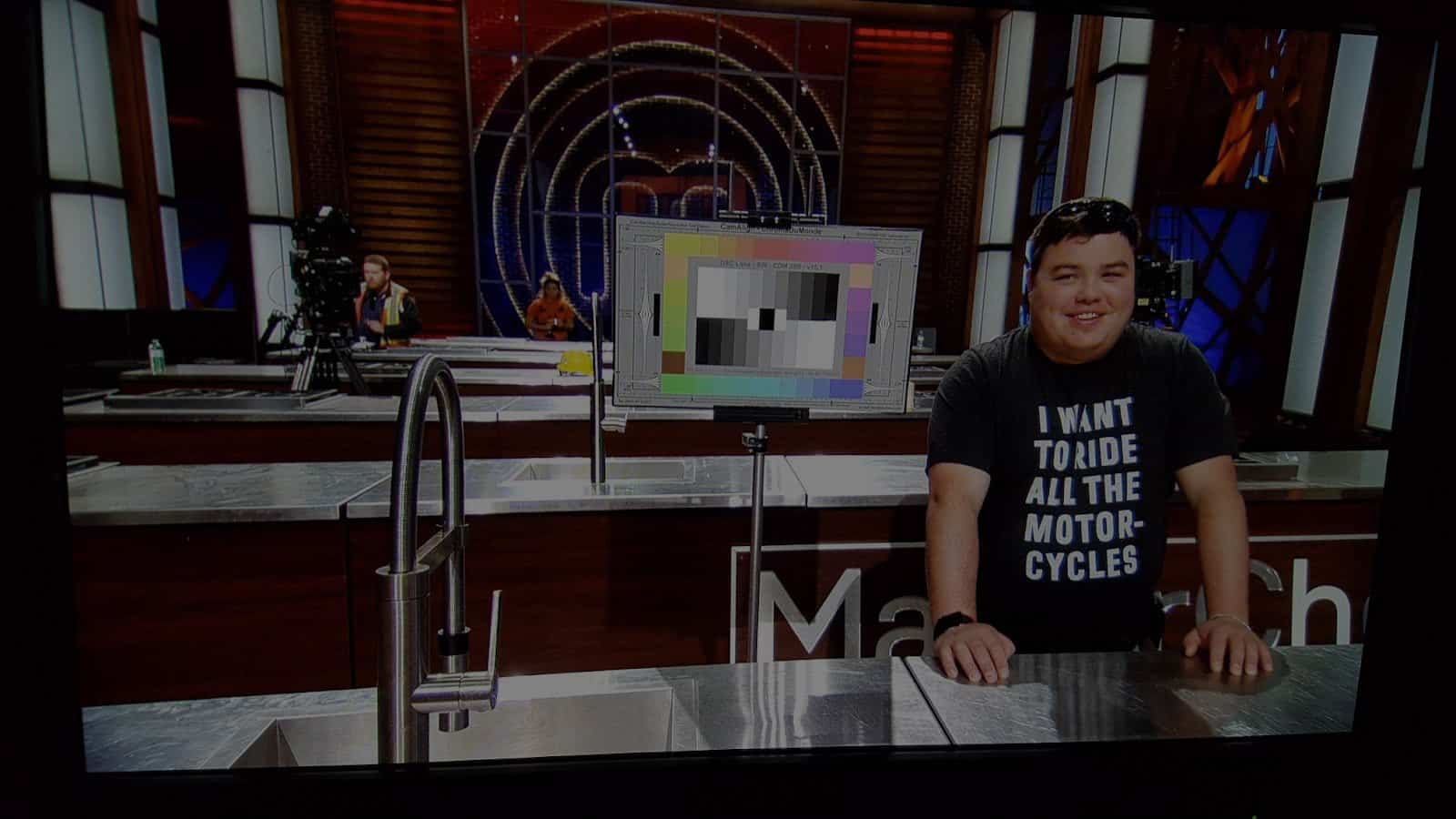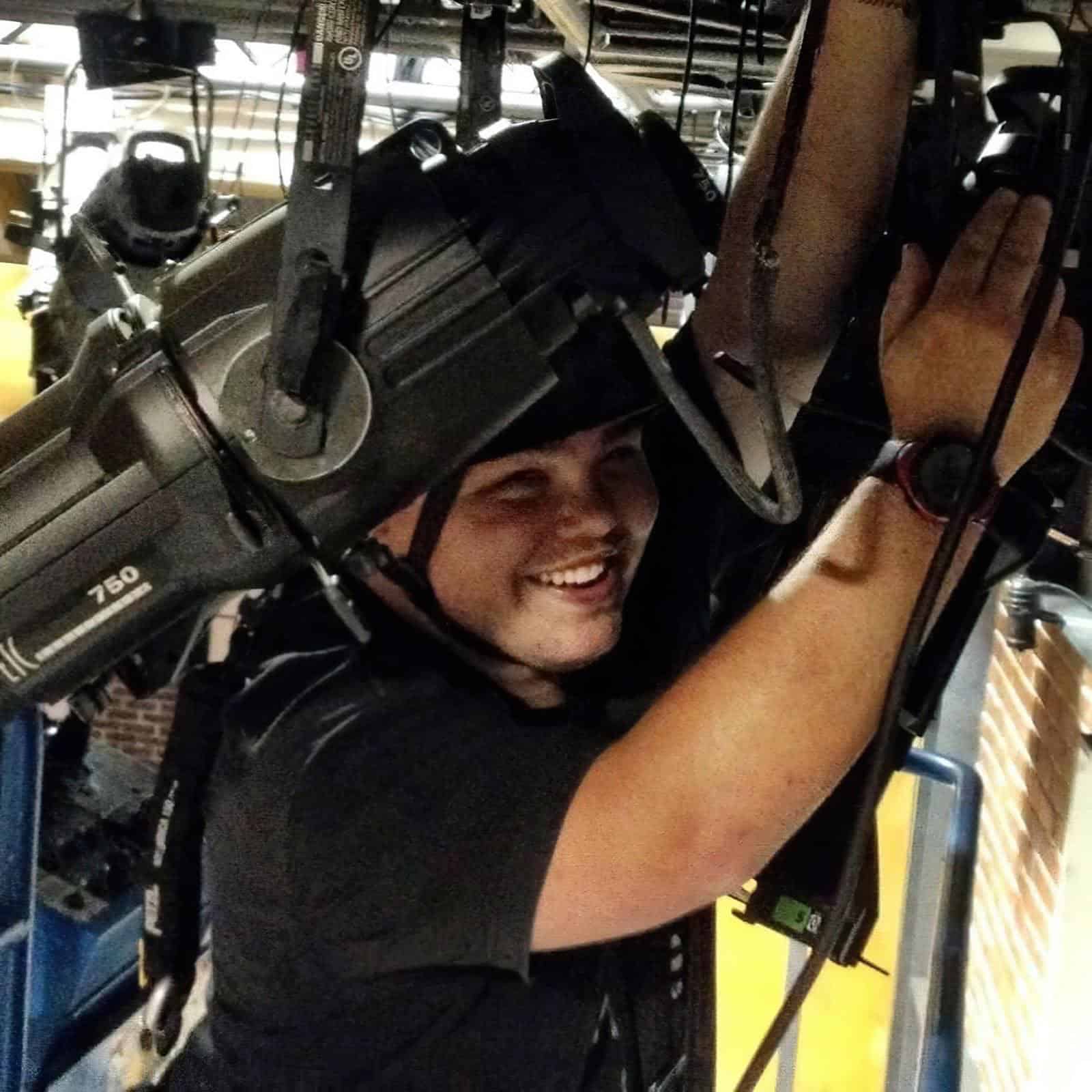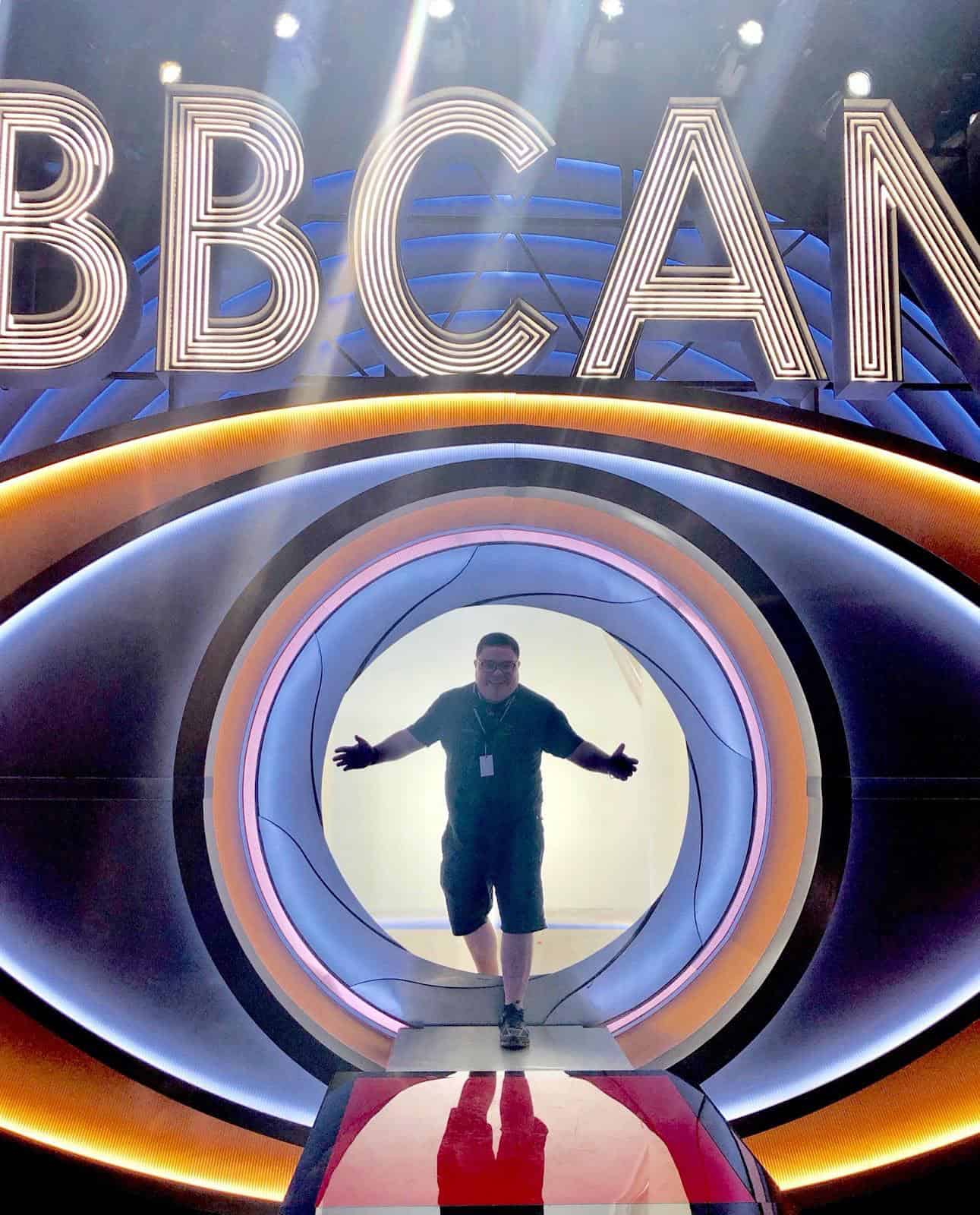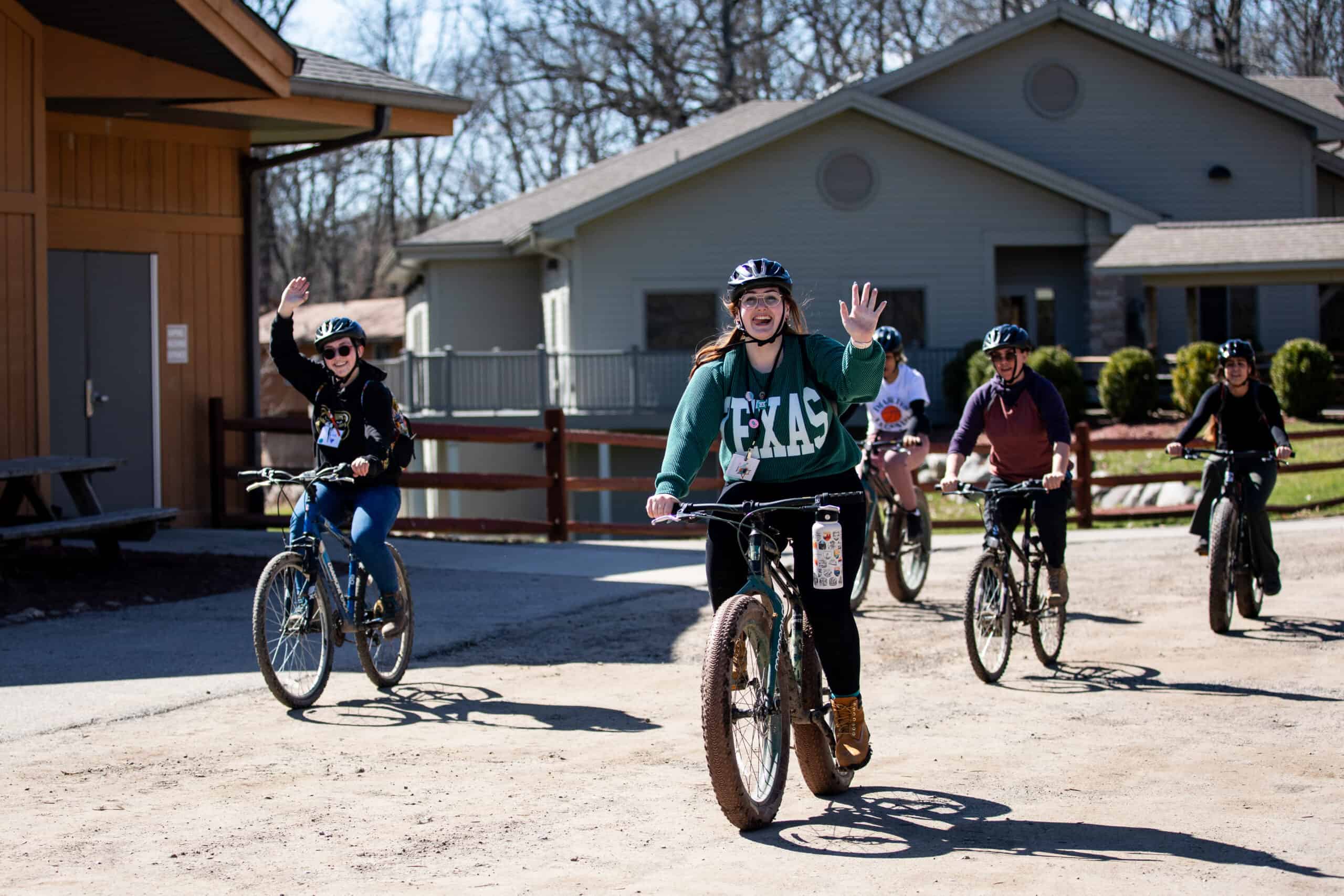This blog is part of the Living Without Limits series featuring conversations with CIM community members who engage in fun, challenging, and interesting activities and careers. This post highlights Kieran Quan who shares his experiences working in television engineering with type 1 diabetes.
Eleanor: First, could you tell me a little bit about your diabetes story?
Kieran: I have a twin brother named Liam. He was diagnosed when he was 18 months old, he had full-on ketoacidosis in the hospital. The doctors got my parents to check my blood sugar every once in a while, too. When I was about 4, they saw it coming up slightly and said, “Your other kid is probably type 1 diabetic as well and you should start him on insulin.” It was a pretty easy diagnosis in that sense, where there was no hospitalization or question of what it was because my brother had gone through that. So I was diagnosed when I was 4, 30 years ago. One of the things my mom says that I said at the time was, “Now I can go to the same summer camp as my brother”. We both went to Camp Huronda and that’s where I met Jen and Julie.
How do you describe what you do?
I have been working in television since 2006. I work in the engineering department, which is kind of a blanket department for anything that is audio and video equipment. We work with the camera operators, directors, sound mixers and others to make sure all the gear is working and communicating the way it should. The shows I work on largely use multiple cameras. There’s a few veins of TV other than sports and documentaries: there’s scripted, rehearsed scenes with a couple of cameras and then there’s reality or competition shows with multiple cameras shooting unscripted stuff. The unscripted stuff is the kind of show I work on. I work on shows that can have about 6 – 120 cameras. It’s mostly dealing with how signals travel between two points. So how the camera shoots it, how it gets to the recorders, and all the signal flow of the TV show.
I’ve worked on shows like MasterChef Canada, Great Canadian Baking Show, and Big Brother Canada. Big Brother Canada is probably the biggest one because we have about 111 cameras for the regular show. It’s more than just a camera shooting–there’s a control aspect, like how it gets switched, how it gets to the recorders and then if there is any special challenges happening. There’s a whole multitude of things that happen before it makes it to post or to air. You’re talking about thousands of feet of cable and someone has to know where all of it goes and what each piece of gear does. What we do is figure out how the system works and how it’s integrated; then keep it all running during the show.
I find the bigger shows more interesting because for me, it’s more of a challenge. I think everyone that works in TV kind of likes the stress and the MacGyver-ness of it. It’s kind of like a train–you can’t stop the train. You can make it run smoother or faster, but it’s still going to get to the station. Similarly, the show is going to make it to air. We’re all there to make the same goal and of course make the best show. It’s an interesting line of work because my department works with everybody–we work with audio, we work with camera…If anyone has a technical issue, we’re there to deal with it and figure out how to get things back up again.
What made you interested in working in the TV and entertainment industry?
I fell into it. I started working for my father who is in the business, and some of his clients started hiring me. So I didn’t go into urban planning or whatever I was planning on and started working in TV instead. I started in audio which turned into a huge advantage now dealing with their equipment. So I started off on one side and ended up somewhere in the middle between a lot of departments. Like a lot of industries I started fairly low down and I guess I worked up as I had an aptitude for signal flow and the systems of shows. I was fortunate to be exposed to some good people that recognized my abilities and allowed me to expand on them.
How does diabetes affect your work? What considerations do you have to make with your diabetes when working?
There’s a high stress aspect to it, but there’s also a time aspect to it. If you’re working on something like a live show, there’s a very hard deadline that has to be met. It’s not like something where you can be out for 10 or 15 minutes all the time to deal with high/low blood sugars. Sometimes you can’t remove yourself from it. It’s very time sensitive and becomes, “I can’t treat a low for 10 minutes, because I don’t have 10 minutes”.
Before Dexcom, it was a lot harder. Early on, I remember doing a live show and testing my blood sugar right before we went to air for an hour. If I was ~5 mmol/L, I would have a snack to bump myself up so I didn’t go low while we were live. There’s a lot of considerations like that–thinking ahead to the next hour because for that hour, my attention has to be there. Being able to see trends with Dexcom has helped a lot. I also always have snacks at my desk and deal with it accordingly.
After 30 years, it’s not something I think of as a hindrance to my job, but just another aspect to look out for.
Have you ever been in a situation where your blood sugar dropped unexpectedly and you had to take a break?
No, there’s never been a time where my blood sugar has been too low to work. Diabetes has always been something I’ve dealt with in the back of my mind, so I’m used to thinking about things like, “I can’t have a low in 20 minutes, so what is my blood sugar now?” It’s a lot of dealing with the ‘nows’ for later as opposed to dealing with it as it comes.
Have you ever found there to be a stigma against people with diabetes involved in your career? Has anyone ever given you pushback or expressed skepticism about handling the job and your blood sugars at the same time?
No, I would say it’s almost the opposite. Most of the people I work for are very accommodating. I remember once they only had diet coke and I said it would be nice if they had more diet drinks. I came back the next day and they had basically every single diet drink there was. I wouldn’t say that there was ever a specific time where I felt people had negative thoughts or opinions of me because of my diabetes. I kind of treat it as it is what it is. I don’t want to worry too much about what other people think.
In TV, most of us are freelancers so we’re all there to do our job and come up with a product together. At the end of the day, we’re making a product, we’re creating something. People are a lot more easy going, because everyone’s different. It’s kind of an industry of people who are different. We’re all traveling from show to show to show and might see each other twice a year, but we still know each other. For me, they all still know I’m a type 1 diabetic and they don’t treat me any differently because of that.
Have you met anyone else with diabetes in the industry?
I know a lot of people with Type 2 diabetes. I’ve met one or two type 1s over the years. Actually, once I met another type 1 when I was doing soccer for a ESPN channel. We got cameras set up here, and we sent the feeds down to the control room, which was in Florida I think. I was in charge of the feeds and I had to check them on the intercom and said ‘hello’ to the director in Florida. We were talking about the energy drink in the States and he said, “I’m type one diabetic so I like the sugar-free energy drinks.” We had this moment of like, “Cool, me too!” It was neat because he was in Florida and I was in Toronto and we were just on headsets chatting to each other. In a completely weird environment, you don’t expect that. Completely out of context, it’s a cool thing. Normally, we would just have a superficial conversation, never about such a specific shared aspect of our lives
Do you have any other diabetes-related tips for your work that you learned along the way?
When I started, we would do these big trans-Canada tours. We would fly from Halifax from Vancouver in a day. We would shoot in Halifax, put all the gear on a plane, go to Vancouver, and shoot the next day in Vancouver for audition tours. I always had a note sent to the hotel saying that I needed a fridge. A lot of the time, truthfully, my insulin never made it into the fridge, but I also use it for diet coke and low snacks. Things like that to make my life a bit easier.
I’ve gotten good at traveling on short notice. I always keep a separate bag of diabetes supplies packed and ready to throw in my larger bag if I’m going on an overnight trip. I don’t take stuff out of it, I keep it ready to go and then all I need to do is grab insulin from the fridge. That way I don’t have to start curating one from scratch every time. That’s helped a lot. I also don’t necessarily rely on production having everything that I need. I make sure I have snacks I can eat, and beverages I can drink.
After over 30 years of diabetes, I don’t think of what I do as specific tips. It’s just normal, so it’s a hard thing to articulate. I don’t know my life any different.

Kieran in the kitchen on the set of MasterChef Canada
Where have you received support, knowledge, & resources from to help you with your diabetes management?
My biggest support is probably my friends. I started Camp Huronda when I was 8, so I’ve always been around those people and it’s something that I’ve grown up with. Having friends who understand what you’re going through and your grievances and will text or call you to talk about it…that has been so beneficial for me in the long run. My brother is type 1 as well, so there’s always someone that has to put up with my nagging or complaints.
What is your favorite thing about your job?
There is something very rewarding about being behind the curtain of what people see. Something that took us 2 days to come up with can play for 20 seconds. It’s cool seeing something you’ve created and knowing what you had to do to get there. You get to watch a show that you’ve done and know that you were there, you were a part of it, and your role contributed to it being on TV.
Beyond that, there’s a lot of troubleshooting. The tech producer or director will say, “we want to do this”. And it’s my job to figure out how we can do it with the equipment we have, what equipment we may need to add, and how it will all fit together. It’s a different way of thinking sometimes.
When you watch TV now are you always thinking about how things are done?
Yes! If you know how stuff is done and put together, you start dissecting what you watch. It becomes less about what you’re watching and more about how they did it. You start counting cameras…you start watching things in a very different way. Not that it’s the wrong way, or it’s a bad way. Everyone is watching shows for different reasons and getting something different out of it. So because I work in TV, my reasons might be a little bit more nerdy or technical than a lot of people, but I’m still getting something out of it.
What is the best way for people to reach you if they’d like to talk more?
If anyone wants to ask about TV shows, they can message me on instagram at @qmasterflex87







